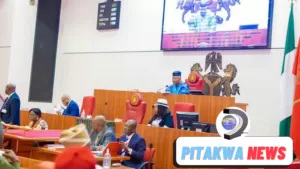Trump Administration Proposes Eliminating Funding for 988 LGBTQ+ Youth Crisis Line

In a draft budget proposal from the Department of Health and Human Services (HHS), the Trump administration has outlined plans to eliminate federal funding for the 988 Suicide & Crisis Lifeline’s LGBTQ+ Youth Specialized Services program, effective October 1, 2025, pending Congressional approval. This move, part of a broader effort to reduce HHS spending, has sparked significant concern among mental health advocates and organizations serving LGBTQ+ youth, who warn that the cuts could have dire consequences for a vulnerable population.
The 988 Lifeline and Its Impact
Launched in July 2022, the 988 Suicide & Crisis Lifeline serves as a national resource for individuals experiencing mental health crises, offering support through calls, texts, and online chats. Since its inception, the Lifeline has received over 10 million contacts, providing critical intervention for those in distress. Within this framework, the LGBTQ+ Youth Specialized Services program was established to address the unique challenges faced by lesbian, gay, bisexual, transgender, and queer youth, who face significantly higher rates of mental health crises compared to their peers.
The Trevor Project, a leading nonprofit focused on suicide prevention among LGBTQ+ youth, has been a key partner in this initiative, handling nearly half of the program’s 1.2 million crisis contacts. These interactions include tailored support for young people navigating issues such as discrimination, family rejection, and identity-based stigma. Research from The Trevor Project underscores the urgency of such services: LGBTQ+ youth are four times more likely to attempt suicide than their non-LGBTQ+ counterparts, with over 60% of these youth reporting a need for mental health support in the past year.
Details of the Proposed Cuts
The draft HHS budget, detailed in a 180-page document, proposes slashing the $50 million allocated annually to the 988 Lifeline’s LGBTQ+ Youth Specialized Services. This cut is part of a larger 30% reduction in HHS’s overall budget, which also targets programs like Head Start, HIV/AIDS research, and maternal health initiatives. The administration argues that these reductions are necessary to streamline federal health services and prioritize “core” public health functions.
The elimination of funding for the 988 LGBTQ+ program would effectively dismantle its specialized infrastructure, including partnerships with organizations like The Trevor Project, which rely on federal grants to train counselors and maintain 24/7 availability. Without this funding, advocates fear that LGBTQ+ youth in crisis may be redirected to general 988 services, which may lack the cultural competency and specific expertise needed to address their unique experiences.
Reaction from Advocates and Experts
The proposal has drawn sharp criticism from mental health organizations, LGBTQ+ advocacy groups, and Democratic lawmakers. Jaymes Black, CEO of The Trevor Project, described the cuts as “a devastating blow” to young people who rely on the service. “This is not just a budget line item—it’s a lifeline for thousands of LGBTQ+ youth who face rejection, bullying, and discrimination daily,” Black said in a statement. “Cutting this funding sends a clear message that their lives are not a priority.”
Senator Tammy Baldwin (D-WI), a vocal supporter of the 988 Lifeline, called the proposal “discriminatory and dangerous,” noting that it aligns with other administration policies targeting LGBTQ+ rights, such as restrictions on gender-affirming care and diversity programs. “The data is clear: LGBTQ+ youth are at higher risk for suicide, and this program saves lives. Defunding it is unconscionable,” Baldwin said.
Mental health experts also warn of broader implications. Dr. Amy Green, a clinical psychologist and researcher at The Trevor Project, emphasized that the loss of specialized services could overwhelm the general 988 system, leading to longer wait times and less effective interventions. “LGBTQ+ youth often need counselors who understand their lived experiences,” Green said. “Without that, we risk losing trust and, ultimately, lives.”
The Broader Context
The proposed defunding of the 988 LGBTQ+ program comes amid a series of HHS budget cuts that critics argue disproportionately affect marginalized communities. The draft budget eliminates funding for several programs aimed at addressing health disparities, including those focused on minority health and rural healthcare access. It also proposes significant reductions to the Substance Abuse and Mental Health Services Administration (SAMHSA), which oversees the 988 Lifeline.
Supporters of the administration’s budget, however, argue that the cuts are necessary to address federal overspending and redirect resources to what they describe as “essential” services. An HHS spokesperson declined to comment specifically on the 988 LGBTQ+ program but stated that the department is “committed to ensuring mental health resources are available to all Americans in a fiscally responsible manner.”
The Path Forward
The fate of the 988 LGBTQ+ Youth Specialized Services program now rests with Congress, which must approve the HHS budget. Given the polarized political climate, the proposal is likely to face significant opposition from Democratic lawmakers and moderate Republicans who have previously supported mental health funding. Advocacy groups, including The Trevor Project and the National Alliance on Mental Illness (NAMI), are mobilizing to urge Congress to preserve the program, with plans for public campaigns and lobbying efforts in the coming months.
For now, the 988 Lifeline and its LGBTQ+ services continue to operate, providing round-the-clock support to those in need. Individuals in crisis can reach the Lifeline by calling or texting 988 or visiting 988lifeline.org. The Trevor Project also offers resources at thetrevorproject.org or by texting “START” to 678-678.
As the budget debate unfolds, the proposed cuts serve as a stark reminder of the challenges facing mental health services in the United States, particularly for communities that rely on targeted support to survive. For LGBTQ+ youth, the stakes could not be higher.
Sources: Draft HHS Budget Document, The Trevor Project Press Releases, 988 Suicide & Crisis Lifeline Reports, Congressional Statements, and Web Searches Conducted on April 24, 2025.






